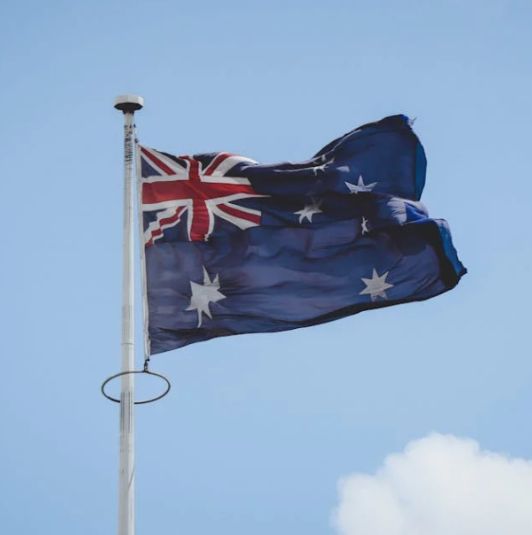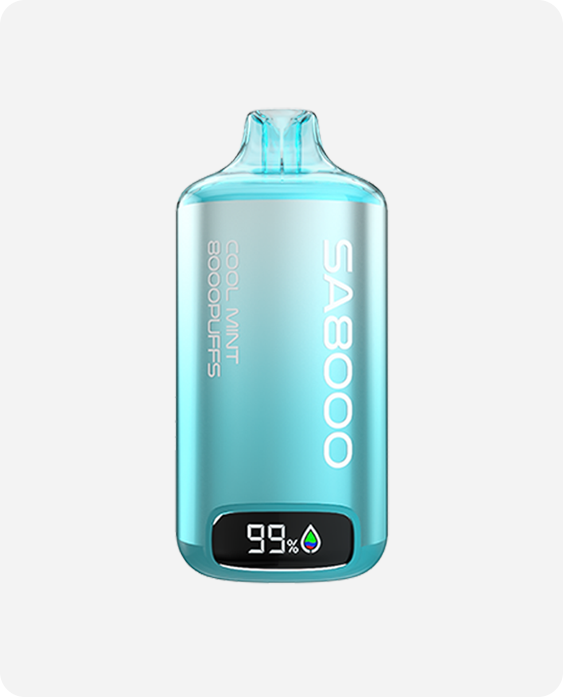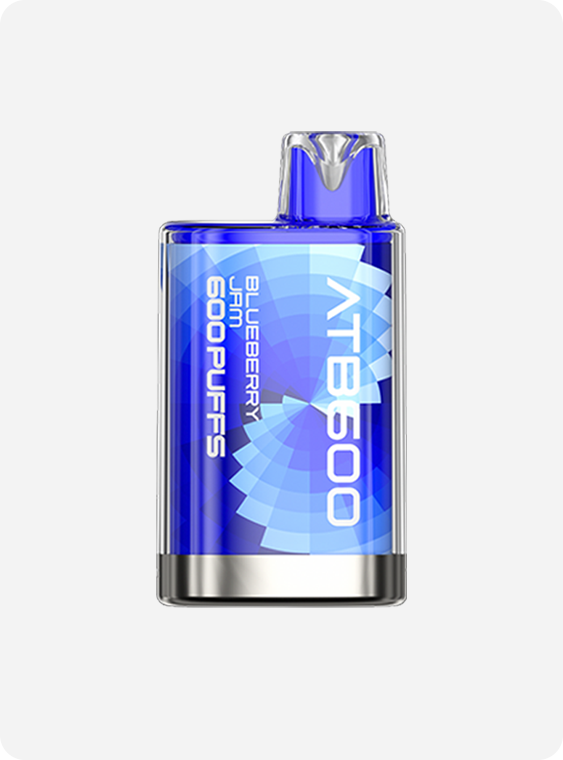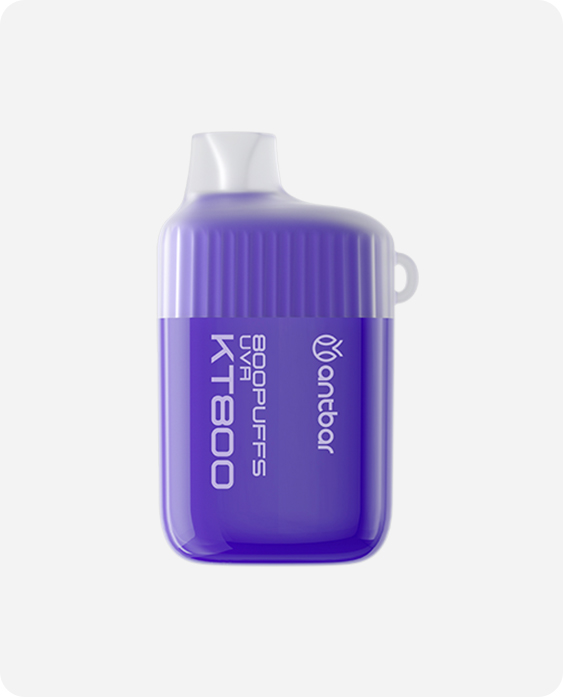
ANTBAR is one of the core e-cigarette brands of the Cloupor Group.We sell a variety of disposable kits. Do you know what your local policy is on e-cigarettes? Search and read it!
Firstly, why do some countries ban the sale of e-cigarettes or intend to ban e-cigarette? There are several reasons:
Public health issues: The composition and effects of e-cigarettes are controversial, and some studies have shown that the nicotine in e-cigarettes may pose a threat to public health, so some countries have banned the sale of e-cigarettes out of public health concerns.
Underage use: E-cigarettes are fashionable, portable and tasty, all of which make them attractive to young people. Some countries believe that banning the sale of e-cigarettes will help to reduce the amount of nicotine consumed by youth and protect the health of minors.
Lack of regulation: Some government officials believe that the e-cigarette market lacks effective regulation and with low quality product problems, false advertising and other problems, and therefore they choose to ban the sale of e-cigarettes.
Economic interests: Some countries believe that the e-cigarette market may affect the interests of the traditional tobacco market, so they adopt a ban on the sale of e-cigarettes to protect the economic interests of the traditional tobacco market.
In addition, there are a number of other factors that influence different countries’ stance on the sale of e-cigarettes, such as cultural background, social values and political factors. In short, different countries have different regulations and management, so they need to make a comprehensive analysis of factors and make the final determination.
Moreover, some initiatives such as banning the sale of e-cigarettes, and taxing e-cigarette follow. In general, the purpose of taxing e-cigarette products is to protect public health and interests, and the government is required to ensure the fairness and sustainability of the tax. In formulating tax policies, various factors need to be considered, including the impact of the tax on consumers and the market, the fairness and sustainability of the tax.
- Raising funds for tax authorities: Taxation is one of the main ways for governments to obtain revenue, which is the capital source for public services and infrastructure development,etc.
- Hazards of tobacco products: Smoking is harmful to public health, the government imposes excise taxes on tobacco products in order to reduce the use of tobacco products and the health problems caused by smoking. As e-cigarettes are an emerging electronic nicotine delivery product, the government still imposes an excise tax on them also for public health.
- Reduce environmental, healthcare and infrastructure costs: The use of e-cigarette products has negative impacts on the environment, healthcare systems and infrastructure,etc. Taxing e-cigarette products can reduce these costs and protect the public interest of society.
- Consumer behavior change: By taxing e-cigarette products, governments can increase the cost of purchase for consumers, thereby reducing the consumption of e-cigarettes, which helps to reduce the public health impact of smoking and reduces healthcare expenditure and social burdens.
For this reason, we examined and counted the e-cigarette policies of 75 countries, of which 43 countries have a vague stance on e-cigarettes, making it impossible to determine whether their use is legal or not. There are also 32 countries that have made clear instructions on the use and sale of e-cigarettes!

Regulation of e-cigarettes in 43 countries: Uncertainty about legality
The following 43 countries cannot confirm the legal use of e-cigarette products: Seychelles, Antigua and Barbuda, Panama, Mauritius, Argentina, Suriname, Uruguay, Sri Lanka, Venezuela, Gambia, Nicaragua, Ireland, Poland, Lithuania, Luxembourg, Slovakia, Slovenia, Algeria, Libya, Morocco, Sudan, Tunisia, Somalia, Mauritania, Yemen, Paraguay, Bolivia, Ecuador, Guyana, Peru, Maldives, Afghanistan, Kazakhstan, Kyrgyzstan, Mauritania, Peru, Maldives, Afghanistan, Kuwait, Kyrgyzstan, Latvia, Lithuania, Lithuania, Luxembourg, Slovenia, Slovakia, Slovenia, Slovenia, Slovenia, Spain, Sweden, Switzerland, the United Arab Emirates and the United Kingdom. Tunisia, Somalia, Mauritania, Yemen, Paraguay, Bolivia, Ecuador, Guyana, Peru, Maldives, Afghanistan, Kazakhstan, Kyrgyzstan, Faroe Islands (Dan), Belarus, Ukraine, Moldova, Liechtenstein, Monaco, Macedonia, San Marino, Andorra. Of these, Seychelles announced its intention to legalise and regulate e-cigarettes in 2019, with implementation in 2023.

The regulation of e-cigarettes in 32 countries:
The other 32 countries or regions have certain initiatives on the sale, use, promotion and taxation of electronic cigarettes, take a look:
What about the vapes banned in those countries?
1、The United States of America’s e-cigarette tax:
There is no federal tax on e-cigarette products in the U.S. Bills to tax e-cigarettes have been introduced in Congress, but so far none has gained support.
E-cigarette taxes in US states, territories and municipalities:
Until 2019, nine U.S. states and the District of Columbia levy e-cigarette products. However, that taxation more than doubled in the first seven months of 2019 as the moral panic over JUUL and the problem of e-cigarettes among teens intensified. Lawmakers take steps to curb the epidemic.
Alaska:
Alaska has no state tax, but some cities have their own e-cigarette taxes. For example, the Borough of Juneau, the Northwest Arctic Borough and the Borough of Petersburg all have a 45 percent wholesale tax on nicotine-containing products, while the Borough of Anchorage and the Borough of Matanuska-Susitna each have a 55 percent wholesale tax.
California:
California’s wholesale tax on other tobacco products is set annually by the State Board of Equalisation and is a percentage of all taxes levied on cigarettes. Initially, this was 27% of the wholesale cost, Proposition 56 was upgraded the cigarette tax, which increased from $0.87 to $2.87 per pack, the e-cigarette tax increased significantly.
For the year beginning 1 July 2022, the tax on all nicotine-containing products accounts 61.74% of wholesale cost. Additionally, Since July 1, 2022, California added a retail tax to the existing wholesale tax, imposing a 12.5% tax on all nicotine-containing e-cigarette products, including those purchased online from retailers in other states.
Colorado:
Currently, Colorado imposes a tax of 50% of the manufacturer’s selling price on all nicotine-containing vapour products, including bottled e-liquids. The tax is approved by Colorado voters in 2020, begins at 30% in 2021, rises to 35% in 2022, and then to 50% in 2023. It rises to 56% in 2024, and ultimately to 62% in 2027. The FDA has granted a Modified Risk (MRTP) designation for products with a 50% reduction (but no liquid e-cigarette product manufacturer has applied for an MRTP designation).
Connecticut:
The state imposes a two-tiered tax on nicotine-containing e-cigarette products: $0.40 per milliliter for e-liquids in closed-system products (cartridges, vape pods, cigarettes), and a 10 percent wholesale tax on open-system products, including bottled e-cigarette liquids and devices.
District of Columbia:
The nation’s Capitol classified e-cigarettes as “other tobacco products” and imposed a tax on the wholesale price of cigarettes based on a rate tied to the wholesale price of cigarettes. The tax is currently set at 91% of the wholesale cost of devices and nicotine-containing e-liquids.
Georgia:
A tax of $0.05 per milliliter is levied on e-liquids contained in closed system products (vape pods, cartridges, cigarettes) and a 7% wholesale tax is levied on open system devices and bottled e-liquids. The tax applies to both products with and without nicotine.
Illinois: a 15 percent wholesale tax is imposed on all e-cigarette products, whether containing nicotine or not. In addition, Cook County and the City of Chicago (located within Cook County) have their own e-cigarette taxes. Chicago imposes a tax of $1.50 per unit on e-cigarette products containing nicotine (including bottled e-liquids and pre-filled devices) and $1.20 per milliliter on the liquid. In addition, e-cigarette users in Chicago must pay a $0.20 Cook County tax per milliliter of liquid. Due to the high tax, some e-cigarette shops in Chicago have opted to sell zero nicotine e-liquids and DIY nicotine tablets to avoid the high e-cigarette tax. Cook County taxes products containing nicotine at a rate of $0.20 per milliliter.
Other states:
Pennsylvania imposes a 40% wholesale tax on e-cigarette liquids and devices; Puerto Rico taxes e-liquids and e-cigarettes; Utah imposes a 56% wholesale tax; Vermont taxes up to 92%; Virginia taxes nicotine-containing e-liquids; Washington imposes a two-tiered tax on e-liquids; West Virginia taxes all e-liquids; and Wisconsin only levies e-liquids taxes in closed system products; Wyoming has a 15% wholesale tax on vapour devices and nicotine-containing e-liquids; Kentucky has a 15% wholesale tax on e-s and devices; Maryland has a 6% retail tax on e-cigarette oils; Massachusetts has a 75% wholesale tax on e-cigarette products; Minnesota has a tax on e-cigarettes; Indiana has a 15% tax on total e-cigarette sales; Kansas taxes e-liquids; Delaware has a tax on nicotine-containing e-liquids; Louisiana taxes nicotine-containing e-liquids; Maine imposes a 43% wholesale tax on all e-cigarette products; Nebraska does not impose a tax; Nevada imposes a 30% wholesale tax on vapour products; New Hampshire taxes open-system e-cigarette products; New Jersey imposes a tax on nicotine-containing e-liquids; New Mexico imposes a two-tiered tax on e-cigarette liquidls; New York imposes a 20 % retail tax on vapour products; North Carolina imposes a tax on nicotine-containing e-liquids; Ohio imposes a tax on nicotine-containing e-liquids; and Oregon imposes a 65 % wholesale tax on non-cannabis “inhalant delivery systems”.
E-cigarette policy in the U.S.: In April 2019, the U.S.Food and Drug Administration (FDA) approved the entry of IQOS, a heated non-combustible tobacco product into the U.S. market, subject to the FDA’s regulations on e-cigarette products, which prohibit the sale of e-cigarettes to minors. In time, regulatory policy has become clearer,and the FDA’s e-cigarette regulations have gradually tightened controls. These include age verification for online sales, a ban on the sale of e-cigarettes other than tobacco and menthol flavors, a 21-year age limit for use, advertising restrictions, and a ban on the use of the U.S. Postal Service to ship e-cigarettes.
Therefore, no matter if you are a user or manufacturer or importer, please refer to the local electronic cigarette regulation and consult the authoritative departments. We look forward to getting in touch with you to offer you a discounted price. Please contact us for a competitive price and we will be happy to assist you. Wish you all the best!
2.Albania
Taxation: A tax of 10 lek ($0.091) per milliliter is levied on e-liquids containing nicotine.
E-cigarette policy: Albania regulates e-cigarettes and other tobacco products through Law No. 56/2019, which amends Law No. 9636 On health protection from tobacco products, has been changed. The law limits the nicotine concentration of e-cigarettes to a maximum of 20 mg/ml, the size of refill containers to 10 ml, and the size of disposable e-cigarettes or disposable cartridges to no more than 2 ml. The packaging should include information that the product is not recommended for young people and non-smokers, contraindications and warnings about side effects. Manufacturers and importers are required to notify the Ministry of Health before placing the product on the market, including a list of ingredients and toxicological data. All forms of advertising are prohibited.
3.Azerbaijan
Taxation: A tax of 20 manat (approximately $11.60) per liter (approximately $0.01 per milliliter) is levied on all e-cigarette liquids.
E-Cigarette Policy: E-cigarettes are regulated as tobacco products and use in public places is restricted in Azerbaijan.
4.Bahrain
Taxation: 100 percent of the pre-tax price is levied on e-liquids containing nicotine. This is equivalent to 50 percent of the retail price. The purpose of the tax is unclear, as e-cigarettes are allegedly banned in the country.
E-cigarette policy: The sale of e-cigarettes is permitted.
5.Canada
Taxation: Canada imposes a federal tax on e-cigarette products in cartridges with nicotine-containing and non-nicotine-containing, and C$1 for every 10 ml, and US$1 for every additional 10 ml. Manufacturers or importers are required to pay this tax, which takes effect on 1 October 2022, but retailers who were allowed to sell older products have not been taxed until 31 December 2022.
E-cigarette policy: E-cigarette as medicinal or tobacco products in Canada. They are subject to a sales license or a ban on sales to minors, restrictions on advertising, sponsorships and promotions, cannot contain addictive substances and are restricted to special flavors. Nicotine concentrations are limited to a maximum of 20 mg/ml. Products are subject to the requirements of the Canadian Tobacco and Electronic Cigarette Products Act and the Canadian Consumer Product Safety Act, and are subject to IC certification.
6.China (People’s Republic of China)
Taxation: China has a two wholesale tax, with a 36% rate on the manufacture or importation of e-cigarettes and a separate 11% tax on wholesale distribution (in China). November 1 2022 will come to effect.
E-cigarette policy: No official specific legislation yet, but there are some rules that shall be followed:
- E-cigarettes are classified as a tobacco product management category,
- Online sales are prohibited,
- Sales to minors are prohibited,
- Tobacco license is required for sales, and
- HNBs containing tobacco ingredients are banned for sale
7.Costa Rica
Taxation: 20% wholesale tax on all e-cigarette products and accessories.
E-Cigarette Policy: E-cigarette are allowed to import, sell and use and regulated as tobacco products in Costa Rica. All transactions must be age-verified (only adults over 18). Advertising is not permitted. Use in public places is restricted.
8.Croatia
Taxation: Although Croatia taxes e-liquids on its books, there is currently still no tax on it.
E-cigarette policy: E-cigarettes are subject to regulatory restrictions under the law of 10 May 2017, and the Ministry of Health needs to be notified prior to product launch. Manufacturers/importers comply with product specifications and submit annual reports. Sales to minors is prohibited, retail outlets are required to display signs, and vending machine sales are prohibited. Registration required for cross-border sales. Nicotine content ≤ 20mg/mL, only premium ingredients allowed. No risk to other ingredients. Stabilized delivery of nicotine, and warning printed on packaging.
9.Cyprus
Taxation: A tax of €0.12 per milliliter is levied on all e-liquids.
E-cigarette policy: The relevant law is regulated by health protection laws, e-cigarettes are prohibited from being sold to persons under the age of 18, and it is also illegal to use e-cigarettes in cars with pregnant women or minors.
10.Denmark
Taxation: All e-liquids are taxed at DKK 2.00 ($0.30) per milliliter.
E-cigarette policy: The sale of e-cigarettes to persons under the age of 18 is prohibited, as is the use of e-cigarettes in public places. Any advertising, promotion and sponsorship related to e-cigarettes are prohibited, and any establishment that engages in e-cigarette-related work is required to submit a written application.
11.Estonia
Taxation: In 2018, Estonia imposed an excise tax of €0.20 per milliliter on all e-liquids. In December 2020, the Riigikogu (parliament) suspended the tax – from April 1 2021 until December 31 2022 – with the aim to end the large black market (and flavor ban) that has developed as a result of over-taxation. According to consumer nicotine organization NNA Smoke Free Estonia, “self-mixed, cross-border and smuggled e-liquids account for 62-80% of the entire Estonian e-liquid market.”
E-cigarette policy: e-cigarettes are classified as tobacco products, are banned from being sold to people under the age of 18, are prohibited for use by minors, and are banned in all public places.
12.Finland
Taxation: A tax of €0.30 per milliliter is levied on all e-liquids.
E-cigarette policy: E-cigarettes are classified as tobacco products and they cannot be sold through vending machines. In addition, the sale of e-cigarettes and related products to persons under the age of 18 is strictly prohibited, and all advertising and promotional activities, even in offline e-cigarette boutiques.Prohibit the use of e-cigarettes in vehicles with children under the age of 15. Nicotine cartridges targeting a nicotine content of less than 10 mg and liquids with a nicotine content of less than 0.42 g per bottle can be legally imported from other countries for private use.
13.Georgia
Taxation: A tax of 0.2 Georgian lari ($0.066) is levied on all e-liquids.
E-Cigarette Policy: E-cigarettes are classified as tobacco products in Georgia and not permitted to be sold to persons under the age of 18. Additionally, the online sale of e-cigarettes is restricted, and it is expected that use of e-cigarette will be banned in public places and public transport in the future.
14.Germany
Taxation: A tax of €0.16 per milliliter is levied on all e-liquids. The tax will gradually increase until it reaches €0.32 per milliliter in 2026.
E-cigarette policy: E-cigarettes are subject to the same laws as tobacco products and prohibited from being sold to persons under the age of 18. Their advertising is restricted on most media platforms such as print media, adverts and TV, but billboards are allowed. Germany is one of the countries with the lightest regulatory measures for e-cigarettes, with no special taxes on vapour cigarettes, no cross-border sales regulations, and only minor restrictions on advertising methods.
15.Greece
Taxation: A tax of €0.10 per milliliter is levied on all e-liquids.
E-cigarette policy: The attitude towards e-cigarettes is the same as for cigarettes. Restrictions on e-cigarette advertising apply to print media, radio, television and the internet, and sales to persons under 18 are prohibited.
16.Hungary
Taxation: All e-liquids are taxed at HUF 20 (US$0.07) per milliliter.
E-Cigarette Policy: E-cigarettes are classified as a consumer product and can be purchased in tobacco shops. Partially licensed, it is legal to sell nicotine-containing cartridges, but limits bottle size to a maximum of 10 ml and can only be sold in official state tobacco shops. The sale of e-cigarettes to minors is prohibited. Hungary is one of the most restrictive countries in terms of nicotine substitutes.
17.Indonesia
Taxation: Indonesia’s tax is 57 percent of the retail price and appears to be only on e-liquids containing nicotine (“tobacco extracts and flavours” is the wording). Officials in the country seem to prefer that citizens continue to smoke.
E-cigarette policy: E-cigarettes are required to receive a letter of recommendation from all three Indonesian ministries and national SNI certification prior to market launch, the product is taxed at 57%, and the host and atomiser are considered consumer goods and are subject to CE-EMC, RoHS, and MSDS testing and certification requirements for vape liquids.
18.Israel
Taxation: The Israeli Tax Authority reduced the e-liquid tax to 8.9 Israeli Shekels per milliliter on 16 February 2023, which is equivalent to $2.50 per milliliter. The tax applies to all e-liquids with or without nicotine, including cigarette cartridges, disposables and bottled e-liquids. While the tax is effective immediately, the Knesset Finance Committee will need to approve it within 60 days and the full Knesset has the power to override the committee.
E-Cigarette Policy: Israel prohibits the sale of e-cigarettes to minors and restricts advertising, promotion and sponsorship of tobacco and vaping products. The nicotine content of e-cigarette products is limited to less than 20 mg/ml, and cartridges are required to have childproof mechanisms. All e-cigarettes and heated tobacco products must be displayed in plain packaging with a warning label.
19.Italy
Taxation: Nicotine-containing e-liquids are taxed at a rate of approximately €0.13 per milliliter, and zero-nicotine products are taxed at a rate of €0.08 per milliliter ($0.10), and these rates will remain in place until 2022.
E-Cigarette Policy: Under the same regulations as tobacco, e-cigarettes cannot be sold to persons under the age of 18 and are prohibited in schools and school grounds.
20.Jordan
Taxation: Devices and nicotine-containing e-liquids are taxed at a rate of 200 percent of CIF (cost, insurance and freight) value.
E-cigarette policy: Jordan only allows those over 19 to purchase e-cigarettes, regulates e-liquid manufacturing, bans the use of e-cigarettes in indoor public places, requires child-safe packaging and health warnings, and restricts nicotine concentration and fill volume.
21.Latvia
Taxation: The unusual Latvian tax uses two bases for calculating excise tax on e-liquids: a tax of €0.01 per milliliter, and an additional tax on the weight of nicotine used (€0.005 per milligram).
E-cigarette policy: Many platforms prohibit the promotion and advertising of e-cigarettes, including electronic media.
22.Malaysia
Taxation: A 10 percent tax is levied on e-cigarette devices and 40 sen ($0.10) per milliliter on e-liquids. However, the government announced that the tax on nicotine-containing liquids would begin on 29 October 2021, which would require a change in the law prohibiting the sale of nicotine-containing products except in pharmacies. (This tax was postponed in early 2022)
E-cigarette policy: No restrictions on zero nicotine products, but restrictions on nicotine products. Ban on the sale of minors. HNB products are allowed to be sold, and no picture warning required for IQOS devices. Certification is required for importation, manufacturers and importers need to apply for SIRIM certification and labelling, and the certification cycle takes about 4-5 months. Testing and certification requirements: CE-EMC, RoHS, cigarette juice MSDS.
23.Norway
Taxation:Although there is a tax on the books of NOK 4.5 ($0.51) per milliliter, the importation or sale of nicotine-containing e-cigarettes is not permitted in Norway.
E-cigarette policy: Partially licensed, e-cigarettes and nicotine-free cartridges can be sold, and the sale and use of e-cigarettes is legal, but nicotine cartridges can only be imported from other EEA member states (e.g., the United Kingdom) for private use. All marketing adverts are banned. Sales to persons under the age of 18 are prohibited.
24.Philippines
Taxation:37 Philippine pesos (PHP) per milliliter of e-liquid containing nicotine salts and 45 PHP per milliliter of free base nicotine e-liquid. For both, the tax will increase by 5 pesos per milliliter per year until 2023. Starting in 2024, the tax will increase by 5 percent per year.
E-cigarette policy:The Philippine e-cigarette regulatory authority has shifted from the FDA to the DTI, which will set product standards and rules. and officially implemented a new e-cigarette bill since June this year, which sets strict regulations on the importation and manufacturing process of zero nicotine products and new tobacco products.
All related products must be operated in accordance with the certification process of the Department of Trade and Industry(DTI), and can only be placed in the market after obtaining the Philippine Standard (PS) logo and Import Commodity Clearance(ICC) sticker.
Products are required to be registered with the DTI three months prior to launch, online sales of products with a nicotine concentration of 65 mg/ml (6.5%) are permitted, and the legal age of purchase has been lowered to 18 years.
25.Portugal
Taxation:a tax of €0.323 per ml is levied on e-liquids containing nicotine.
E-cigarette policy: Restrictions on the sale of nicotine-containing cartridges.
26.Romania
Taxation: 0.52 Romanian lei ($0.12) per milliliter on e-liquids containing nicotine. There is a way to adjust the tax annually based on consumer price increases.
E-cigarette policy: The sale and use of e-cigarettes is legal.
27.Russia
Taxation:Disposable products (e.g. cigars) are taxed at 50 rubles ($0.81) per item. Nicotine-containing e-liquids are taxed at 13 rubles per milliliter.
E-cigarette policy: E-cigarettes can be imported, sold and used in Russia, which need to comply with the provisions of the Tobacco Control Act. Adults can only buy and use e-cigarettes at specific points of sale, prohibit vending machines and Internet sales, and prohibit advertising. 0-nicotine products are also required to comply with the relevant regulations, and the nicotine content of the liquid must not exceed 20 mg/ml.The products need to meet the requirements of the EAC compliance certification and RoHS testing and certification.
28.Saudi Arabia
Taxation:E-liquids and devices are taxed at 100 percent of the pre-tax price. This is equivalent to 50 percent of the retail price.
E-cigarette policy: Saudi Food and Drug Administration regulations allow for the sale of e-cigarettes that meet specific standards, including specific device and packaging requirements, and require health warning labels to cover 65% of the front and back of the package. Flavorings in e-cigarette liquids are partially banned, with fruit flavorings and menthol permitted, but cocoa, vanilla, coffee, tea, spices, candies, chewing gum, colas, and alcohol are prohibited.
29.Serbia
Taxation: A tax of 4.32 Serbian dinars ($0.044) per milliliter is levied on all e-liquids.
E-cigarette policy:The law on advertising (RS Official Gazette, No. 6/2016) places restrictions on advertising, promotion and sponsorship related to e-cigarettes, e-liquids and e-cigarette ingredients.
30.South Africa
Taxation: A tax of R2.90 per milliliter (approximately US$0.15) is levied on all e-liquids. The tax comes into effect on 1 June 2023.
E-cigarette policy: Partial e-cigarettes and nicotine-free cartridges can be sold, but nicotine-containing e-liquids are banned. E-cigarette products are under tobacco control, which means they face severe restrictions in marketing and sales. HNB products are beginning to be sold.
31.South Korea
Taxation:South Korea was the first country to impose a national tax on e-cigarettes, and has taxed e-cigarette liquids since 2011; there are currently four taxes on e-liquids of up to KRW 1.799 (USD 1.60) per milliliter, as well as a waste tax on disposable cartridges and smoke cartridges. However, e-liquids made from synthetic nicotine are tax-free.
E-cigarette policy: South Korea bans the sale of e-cigarettes to minors, and requires packaging and advertisements to contain health warnings, prohibits the use of e-cigarettes in public places. The e-cigarette is subject to high taxes and waste fees, and meets testing and certification requirements.
- Sweden
Taxation:2 Swedish kronor (SEK) per mL ($0.22) up to 15 mg/mL for nicotine-containing e-liquids. E-liquids containing 15-20 mg/mL are taxed at 4 SEK/mL.
E-cigarette policy: Selling e-cigarettes is legal for anyone, but selling nicotine liquids to minors under 18 is illegal.















